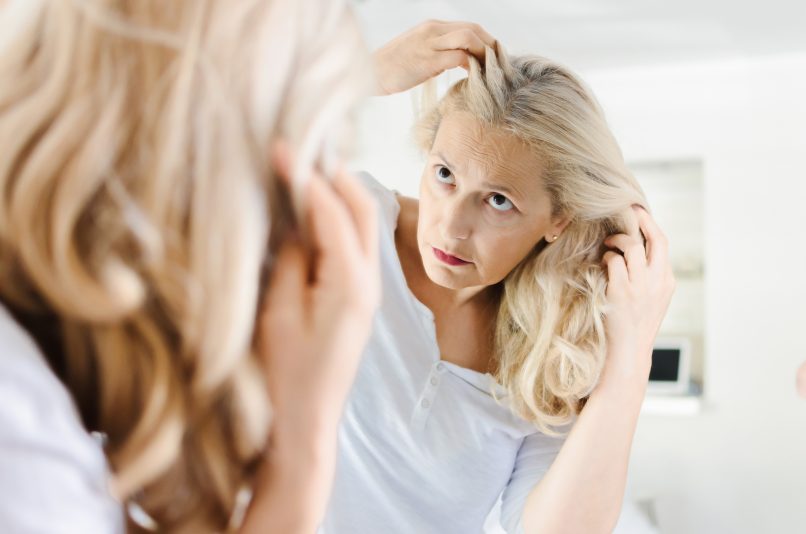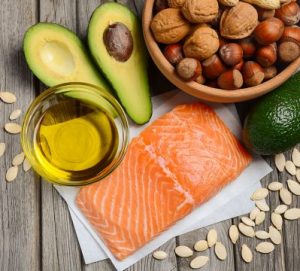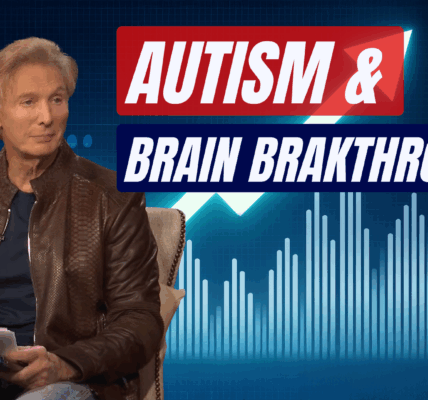Hair Follicles: A Mini Organ?
Believe it or not, hair follicles are considered mini-organs that go through its own growth cycle, starting at an embryonic stage. Many nutrients play a role in the biochemical reactions allowing a follicle to move into induction, organogenesis, and cytodifferentiation stages (1, 2).
Lack of certain nutrients, or conditions that impair their metabolism, is a substantial cause of hair loss.
Types of Hair Loss
Not all hair loss situations are the same. For some people, hair loss as a gradual, overall thinning. Others individuals experience bald spots, and others have handfuls of hair falling out. And of course, some incidents of hair loss are usually due to medical interventions, like chemotherapy.
There’s even different types of hair loss among these patterns of thinning.
All hair loss is called alopecia, which comes in 4 main types. These include:
- Androgenetic alopecia: is female-pattern baldness or hair loss caused by genetics or family history. For women, androgenetic alopecia is the leading cause of hair loss and usually occurs between the ages of 12 and 40 years. It’s usually not limited to the hairline or a specific bald spot on women, but an overall thinning.
- Alopecia areata: is a patchy hair loss, which happens suddenly on the head or body, and usually starts with one bald spot.
- Cicatricial alopecia: occurs when scars form on the head or body. Scarring damages the area’s hair follicles and replaces them with scar tissue. Hair doesn’t grow back on the scar tissue, and leaves a bald spot instead.
- Traumatic alopecias: generally caused by hairstyling. They can occur due to chemical treatments, blow dryers, straighteners, dyes, and more.
Nutrient Deficiencies Causing Hair Loss (#1-6)
Along with conditions, there are also many nutrient deficiencies that can cause hair loss. From vitamins to minerals to macronutrients, our bodies depend on nutrition to replace and grow different tissues in our bodies. Hair is no exception. Here are the top 6, out of 12, nutrient deficiencies that cause hair loss (6 more to come in Part 2).
1. Protein
While those on a Western Diet seldom experience protein deficiency, it certainly can happen and affects hair growth. If you’re using an unhealthy low-nutrient detox over many days, crash dieting, or fasting too much, you can experience protein malnutrition, which results to hair loss.
Sudden decreased protein intake can result in both acute and chronic hair loss (3).
If using Keto Zone, which is low-carb, moderately low-protein, and high-fat, make sure you’re still getting 40+ grams of protein each day. For example, if eating 1,500 calories or so, you can stay in the Keto Zone with:
- 1,125 calories fat (125 grams, 75%)
- 120 calories from carbs (30 grams, 8%)
- 255 calories from protein (64 grams, 17%)
As long as you include a high-quality protein source at one meal and supplemental proteins, such as Hydrolyzed Collagen or the Keto Zone Shake, at another time, you can easily get enough to resolve any low-protein hair loss.
2. Iron
Iron deficiency is quite common worldwide; it’s the world’s most common nutritional deficiency. Iron deficiency is also a well-known cause of hair loss.
How does iron deficiency cause hair loss?
The exact answer remains unknown. However, low iron disrupts the cells in hair follicles’ ability to rapidly divide and grow (4). What’s more, iron may regulate one or more of the genes identified in hair follicles (5, 6).
Animal studies have shown resolution of iron deficiency leads to restoration of hair growth (7).
Women, vegans, athletes, those who live at high altitudes, individuals with digestive disorders, on high levels of turmeric and ginger supplements, and those taking antacids are all at risk for iron deficiency.
If you suspect you have low iron, you can talk to your doctor and get your serum ferritin levels checked. Optimal serum ferritin is 50-70 ug/dL.
You can also eat red meat from cattle, bison, elk, and venison several times per week. You should also cook with cast iron cookware. Use iron supplements if needed and recommended by your doctor.
3. Zinc
Zinc is an essential mineral responsible for hundreds of reactions in the body, like protein synthesis, cell division, and hair follicle morphogenesis (8, 9, 10).
Signs of zinc deficiency include diarrhea, poor immune function, and delayed wound healing. Abnormalities in taste and smell may occur.
Typically, individuals with digestive disorders, cancer, pregnant women, patients with alcoholism, those taking certain medications including blood pressure meds, and vegans may be at higher risk (11, 12).
One study found that all 312 participants in hair loss groups had statistically lower zinc concentrations as compared to 30 healthy controls (13). Luckily, hair loss patients with low serum zinc have restored hair growth with supplementation (14).
If you suspect a zinc deficiency, talk to your doctor. You may resolve the deficiency with a multivitamin or you can take zinc supplement of just 30-50 mg zinc, alongside 1-2 mg copper per day intake. It’s important to look at all supplements, though, and not consume too much zinc since toxic levels also have detrimental effects.
4. Fatty Acids
If you’re in the Keto Zone, you likely aren’t too low in fatty acids! But, for those who eat a low-fat diet, or those who malabsorp fats, you may have hair thinning trouble.
Typically, inadequate fatty acids result in loss of scalp hair and eyebrows as well as lightening of hair (15,16).
To avoid this, eat healthy fats, including omega-3s, omega-9s from olive oil, avocados, nuts, and more, medium-chain triglycerides from MCT Oil Powder, coconut oil, etc.
5. Selenium
Selenium is a trace mineral that can also impact hair.
How?
Selenium protects hair follicles from oxidative damages and plays a role in follicle morphogenesis.
In fact, animal studies have shown hair growth is limited when selenium is deficient (17). Other studies have shown improvements with supplementation (18).
Many adults are low in selenium, due to over-farming and poor soil conditions. However, the risk is higher if you’re on hemodialysis, have HIV, or malabsorption digestive disorders (19).
If you think you may be deficient, talk to your doctor. Selenium can certainly become toxic from supplements, (20, 21), which can result in generalized hair loss, blistering skin lesions, gastrointestinal symptoms, and memory difficulties.
6. Vitamin D
Hair follicle cycling, or morphogenesis, is an important part of hair growth and maintenance.
Animal studies show vitamin D also plays a vital role in hair production (22). In fact, one study found that low vitamin D resulted in hair loss (23), while others have shown that increased vitamin D increases expression in the roots of hair follicles during growing phases (24).
Human studies have found that participants with hair loss have lower vitamin D levels than controls (25).
A majority of adults may be low in vitamin D; work and life indoors, winter months, fat malabsorptions, and ark skin increase the risk of low vitamin D (26).
If you are low in vitamin D, as indicated by a total vitamin D lab result, you can increase it with sun exposure and supplementation. Generally, taking 1000 IU Vitamin D3 per 25 pounds body weight, each day, for six weeks is an efficient therapeutic plan. Retest after six weeks.
Bottom Line
Stay tuned for Part 2 and 3 in this series of Conditions and Nutrient Deficiencies Causing Hair Loss. These first 6 nutrients are important for hair health, growth, and overall wellness. As you eat foods each day, look to a variety of whole foods that provide essential nutrients, including healthy fats, whole-food proteins, nuts, seeds, and vegetables. You can also supplement when needed.

















Comments are closed.